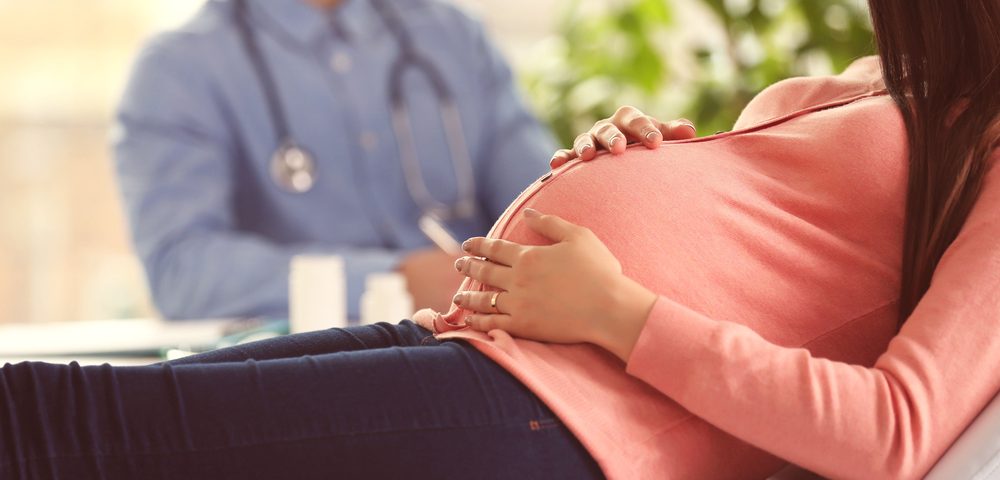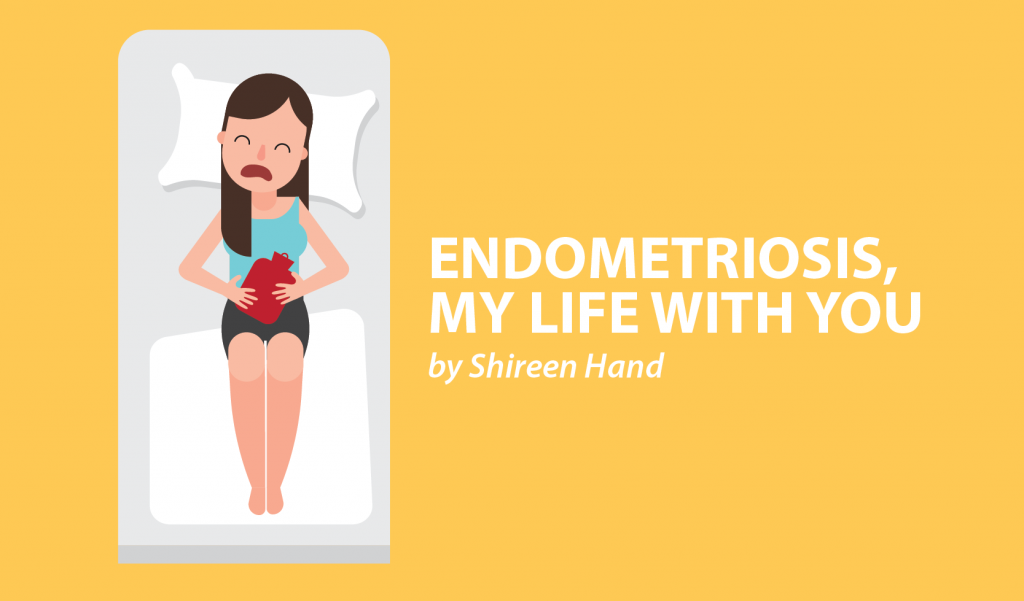It might be hard to believe, but before being diagnosed with endometriosis, I didn’t want children. I was still quite young, but I was determined that children were not something I wanted for my future.
It was only as the pain I was suffering was being investigated that it dawned on me that I might not be able to have children. For me, that’s when everything changed. This realization made me automatically want, not so much a child, but an answer: Could I have children in the future? I spent most of my 20s yearning for this answer, and it never went away. It was present when I was alone, when I stepped outside the house, and at night I dreamed of it. It was everywhere I went.
I would speak about it often, but it was an odd position to be in, because I didn’t want a child at that age. The only hope my specialist could offer was that it might be possible, if my endometriosis stayed as it was post-surgery. But it didn’t.
We started trying for a baby seven years after I was diagnosed. Without knowing, I began my journey through the stages of infertility: denial, anger, bargaining, depression and acceptance.
No matter what your health is like, whether you are fit or suffer with illness on a daily basis, I think that when you start trying for a baby, you expect it to happen. Even with my extensive and aggressive endometriosis, I still thought that I would get pregnant straight away.
After a first month of trying, your hopes change. I thought, we just needed to try a bit longer; it doesn’t always happen straight away, right!? But, deep down, I knew.
After eight years of not knowing the answer to my question — and a year into trying for our baby — I found out that one of my fallopian tubes was blocked. A few months later, I found out that irreversible internal damage caused by my endometriosis, along with me not ovulating and having a blocked fallopian tube, meant that our 18 months of trying to conceive was futile. I couldn’t have children naturally.
I had always assumed that having this answer would make the situation easier to deal with, that I could move on. Obviously, it didn’t. I was devastated.
It was nearly impossible to hide my grief. It made it difficult for me to see friends and their children. I was jealous and angry toward anyone around me that managed to get pregnant ― with ease or not. I became very bitter, congratulating fellow endo sisters pregnancy announcements through tears and back-handed compliments (“Congratulations! That’s fab news that you didn’t have to go through fertility treatments!”). How could I be happy for others when my body wouldn’t work like theirs did? Why wouldn’t my body work like it should? I’m female. Isn’t this what I’m made for?
A pelvic pain psychologist I saw during this time described infertility as being on the same psychiatric level as that of stillbirth. Two completely different situations unified by ever-present grief that is never resolved and keeps on giving. And it did just that.
My journey wasn’t long in comparison to others, though. We were granted one single round of in vitro fertilization (IVF) after two years of trying to conceive. We got 10 eggs, eight of which fertilized, one of which survived. We had one single chance at having a baby … And he was the toughest little blastocyst we could have ever wished for. He grew to be the most incredible little boy. Our little boy, our miracle.
If you are facing infertility, please be gentle with yourself. Allow yourself to feel the myriad of emotions. Realize it’s OK not to attend social events that will leave you in pieces. Communicate with your partner. Ask questions. And, although I usually encourage finding a support system either locally or online, be careful, because these places might well trigger all the emotions you are trying to avoid.
You can follow more of my journey over at www.emlwy.com.
***
Note: Endometriosis News is strictly a news and information website about the disease. It does not provide medical advice, diagnosis, or treatment. This content is not intended to be a substitute for professional medical advice, diagnosis, or treatment. Always seek the advice of your physician or other qualified health provider with any questions you may have regarding a medical condition. Never disregard professional medical advice or delay in seeking it because of something you have read on this website. The opinions expressed in this column are not those of Endometriosis News or its parent company, BioNews Services, and are intended to spark discussion about issues pertaining to endometriosis.


